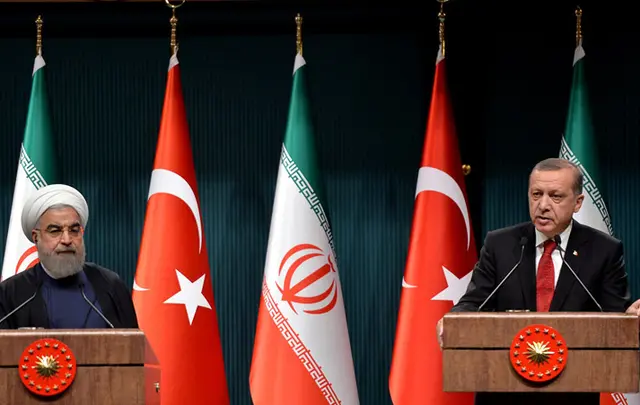Iran has been trying hard to repair its squeezed economy and heat the ties with the rest of the international community over the past nine months since the signing of the historic agreement on Tehran's nuclear program, yet it seems that the Islamic Republic's decades-old rift with Washington would not go away easily.
Spat with Washington
"Gone is the era of spreading Iranophobia and resorting to false pretexts to portray Iran as a threat," Iran's Foreign Ministry spokesman Hossein Jaber Ansari said.
However, "Iranophobia" seems hard to phase out, especially for the United States.
The military expansion, in particular the missile program, sank Iran into the accusation of being a threat to regional and world peace, albeit the alleged purpose of self-defense.
Iran's Islamic Revolution Guards Corps (IRGC) on Tuesday started three-day large-scale military drills, code-named the Great Prophet, in the southeastern part of the country.
The IRGC had staged missile drills and test-fired several ballistic missiles in March, which incited the criticism of the West that fears that the program might be developed for carrying nuclear warheads.
Then the U.S. Treasury Department blacklisted two Iranian companies and a few Iranian individuals, as the White House considers Iran's missile program as a threat to peace.
The words of U.S. Secretary of State John Kerry made things worse.
Kerry said Iran should stop its destabilizing behavior in the Middle East, and the U.S. was open to a "new arrangement" with Iran for resolving the issues pertaining to the country's missile program.
Iranian Foreign Minister Mohammad Javad Zarif dismissed Kurry's remarks as "baseless," and stressed Iran will never negotiate over its missile program as it is a matter of national defense.
If the United States is serious about the arms, it is better to reconsider the sales of the weapons which were used against Yemenis and Palestinians, he said.
Later last month, Iran's Supreme Leader Ayatollah Ali Khamenei expressed his support for the country's missile program.
"If Iran only relies on dialogue, economy, technology and science but does not develop its defense capability, even weak nations may threaten the country," Khamenei was quoted as saying on his official website.
The foreign minister highlighted that Iran's defense capability will only serve for self-defense purposes, instead of being developed to carry nuclear warheads.
Under the UN Security Council Resolution 1929, Iran is prohibited from working on ballistic missiles capable of delivering nuclear warheads.
The U.S. persistence on imposing sanctions against Iran and its failure to implement its commitments pertaining the nuclear deal is "unconstructive," the Secretary of Iran Supreme National Security Council Ali Shamkhani said on Saturday.
"It will leave negative impacts on the process of cooperation" on the nuclear agreement known as the Joint Comprehensive Plan of Action, said Shamkhani.
The Iran nuclear deal, signed in July last year, demands that Iran curtail its nuclear program in exchange for billions of dollars in sanctions relief.
But the head of Iran's central bank said that Iran's counterparts "have not honored their obligations" and that "almost nothing'' has been done.
Warming ties with others
While Iran is still at loggerheads with the United States, it is busy building up ties with the rest of the world, particularly the European Union (EU)
On Saturday, Iran and the EU agreed to promote ties by opening an EU office in Tehran in the future.
The consultations were made in Tehran for future cooperation of Iran and the EU in a number of areas ranging from economy, environment to regional issues, migration and human rights.
Despite the backslid bilateral relations, Turkey and Iran on Saturday agreed to promote trade, investment and business ties while jointly addressing terror and sectarian conflicts in their region.
"We should make efforts together in order to end bloodshed in our region. It's true that Turkey and Iran have some difference on regional issues, but we are in agreement to end blood in the region," Turkish President Erdogan stated.
The two countries have been on opposing sides on Syrian crisis. Iran backs Syrian President Bashar al-Assad, while Turkey insists the departure of the Syrian leader as part of any resolution of the conflict.
Earlier this week, Iranian and Italian companies inked 12 agreements to cooperate in energy, construction, power generation, information and communication technologies as well as steel and textile sectors, during Italian Prime Minister Matteo Renzi's visit to Iran.
Both sides also inked seven MoUs to elevate bilateral cooperation in science and technology, tourism, environment, energy and railway sectors.
On Monday, Iran and Kazakhstan signed 11 agreements and memorandums of understanding (MoUs) in a bid to boost ties in diverse areas, ranging from technology, road and rail transport, commerce and environmental protection to prisoner exchanges. Enditem
 简体中文
简体中文

